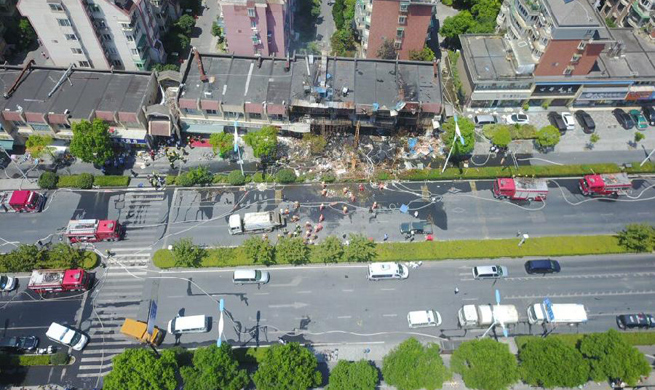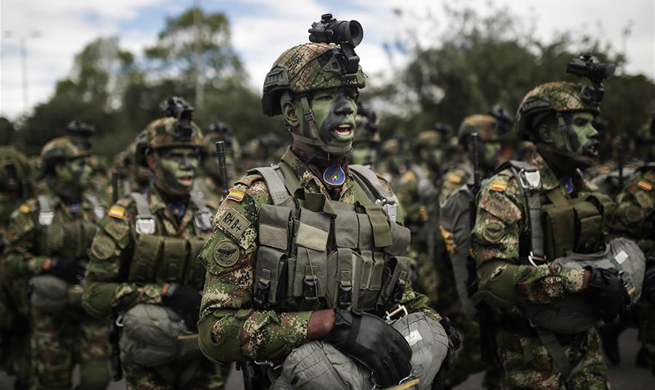SEOUL, July 21 (Xinhua) -- South Korea's defense ministry on Friday canceled plan to measure electromagnetic waves, emitted from the radar of the U.S. Terminal High Altitude Area Defense (THAAD) missile defense system deployed in the country's southeast region.
Defense Ministry spokesman Moon Sang-kyun told a press briefing that the plan was called off amid the oppositions from anti-THAAD residents and peace activists.
Moon said if residents want the measurement in the future, the ministry will provide assistance for that.
The ministry was originally scheduled to measure the level of the wave emission Friday in areas near the golf course in Seongju county, North Gyeongsang province where part of the THAAD battery was installed.
Two THAAD mobile launchers and the X-band radar were transported to the golf course in the middle of night on April 26, about two weeks before the May 9 presidential by-election.
A THAAD battery is composed of six mobile launchers, 48 interceptors, the AN/TPY-2 radar and the fire and control unit.
The radar is known to emit super microwaves, detrimental to human body and environment.
Some 40 people in Gimcheon city, which directly faces the radar located in the northernmost part of Seongju, asked the defense ministry to measure the level of the wave emission amid growing fears over its perilousness.
However, anti-THAAD residents in Seongju and Gimcheon held a press conference Thursday to oppose the planned measurement, calling for the measurement to be officially conducted as part of the ongoing environmental impact assessment on the U.S. missile shield.
The defense ministry under the previous government measured the level of the wave emission in July last year with the THAAD radar installed in the U.S. Pacific island of Guam.
At the time, the radar was reported to have emitted a tiny level of electromagnetic waves.
Anti-THAAD residents in South Korea claimed the result was manipulated, saying the radar would have emitted a dangerous level of waves if it was in a full operation.

















